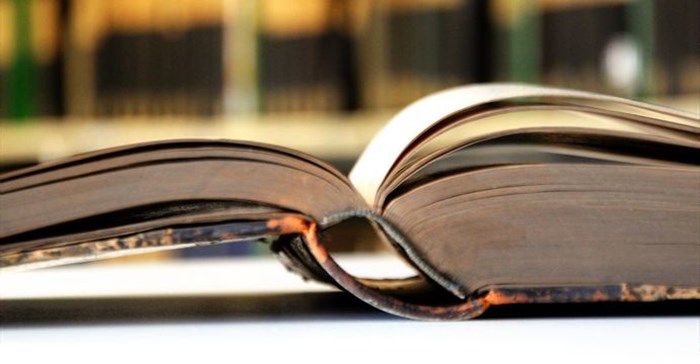
Top stories


ESG & Sustainability#BudgetSpeech2026: SRD grant unchanged, other Sassa social grants see hike
13 hours



More news












ESG & Sustainability
South Africa’s carbon tax should stay: climate scientists explain why









Founding members
Naomi Kakundu is from the small town of Ndola in the copper belt province of Zambia. In 2014, she was a second-year law student at the University of Cape Town faculty of law, considering whether to take an elective course in mineral law.
In Scotland, Abdoul Karim Kabele-Camara from Conakry, Guinea, was working on his PhD at the University of Dundee, specialising in mining infrastructure development and regulation in sub-Saharan Africa.
In Mozambique, Deisy Ribeiro had begun her first year as a law student and became interested in mineral law after hearing about her country’s natural resource discoveries and the lack of local professionals to meet the needs of companies investing in Mozambique.
The three joined 11 other students two years ago to become part of Africa’s next generation of leaders in the mining sector, through their role as founding members of the legal research team of AMLA project.

The project gathers, organises, and disseminates laws and builds capacity across the African continent via three main channels:
Initiated by the World Bank Group in 2013, the AMLA project is a multi-stakeholder programme that works in close partnership with the African Legal Support Facility, the African Union Commission, several African universities and other global private and public institutions.
Currently, the project has trained 44 African law students—20 women and 24 men—from 17 countries. Students represent all four regions of the continent and speak French, Portuguese, Arabic and English.
Starting with an intensive 10-day training, pre-selected students attend sessions on a diverse range of topics impacting the mining sector, from fiscal regimes, licensing and local content to community development, environmental protection and health and safety. Students are introduced to the AMLA platform that is populated with the primary mining codes, regulations and related legislation of all African countries.
The best students from each year's training are invited to join the legal research team responsible for populating and updating the AMLA platform. Each student is assigned to analyse a minimum of two countries’ mining legislation against a common taxonomy of topics, to encourage comparative analysis, and gives each member the mission to also gather related legislation.
Members of the team rely on each other to answer questions of legislative interpretation and formatting, engaging with one another weekly and often daily via the World Bank Group’s Communication for Development (C4D) online platform. A group of experts in the field are also present on the C4D platform, to guide the students in their research assignments when needed.
Today, Kakundu, Ribeiro and Kabele-Camara are all applying the knowledge they gained through AMLA training as legal professionals in the mining sector.
Kakundu serves as a reviewer of the legal research team’s research results and is preparing to begin postgraduate studies in tax law with a focus on mining tax.
Kabele-Camara serves as a reviewer and project coordinator for the AMLA project at the African legal support facility.
Ribeiro graduated with distinction from her legal studies, has published and lectured on criminalising the illegal sale of precious stones, and now works as a junior legal researcher at a Mozambican law firm, focused on legal services in oil, gas, mining, energy and infrastructure projects.
“The work of the team not only provides the world with an incredible resource but it also prepares the next generation of African leaders to develop mining frameworks that foster sustainable development in our countries,” say Kabele-Camara.
The AMLA project continues to train law students in the use of the platform and mining law in general, and is preparing for its third annual training with 33 African law students in December 2016.